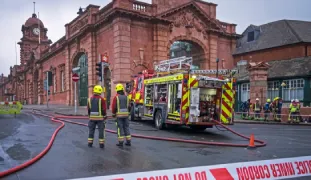Legal and Compliance Framework (NPSA guidance, UK Security Standards)
Why Legal and Compliance Standards Matter
In the control room, every action you take must stand up to scrutiny. Emergencies are stressful, fast-moving, and often unpredictable, but that does not mean corners can be cut. UK security officers operate under strict laws and standards that exist to protect the public, protect the organisation, and protect you as an operator.
Compliance is not about ticking boxes. It ensures that when something goes wrong, your actions are lawful, professional, and defensible. Following the right framework gives you authority, and ignoring it can leave you and your company exposed to legal consequences.
The Key Standards You Work Within
While you don’t need to memorise every regulation word for word, you must understand the principles behind them:
| Framework / Standard | What It Means for SCR Operators |
|---|---|
| SIA Licencing | Ensures only trained, licenced, and vetted professionals work in security roles, including control rooms. |
| BSI Standards (BS 7499, BS 7858) | Cover site security operations, incident logging, and staff vetting, ensuring quality and trustworthiness. |
| NSI Guidance | Sets best practice in monitoring centres, CCTV operations, and alarm responses, keeping operations reliable. |
| ACS (Approved Contractor Scheme) | Provides assurance that the organisation delivers consistent, professional security services. |
| GDPR | Governs how CCTV and personal data is used, ensuring privacy and preventing misuse of sensitive information. |
| NPSA Guidance (formerly CPNI) | Advises on counter-terrorism and protective security, helping SCR operators respond to national security threats. |
Real-World Example
In 2019, a fire at Nottingham train station forced the evacuation of thousands of commuters, and the control room played a vital role. Operators coordinated with staff, monitored evacuation routes on CCTV, and kept emergency services updated. Because incident logs were accurate and communication followed compliance standards, investigators later used the records to improve fire safety nationwide, proof that good control room practice protects lives during the incident and shapes safety long after it.

Consequences of Non-Compliance
Legal penalties: Breaching GDPR can result in fines of up to £17.5 million or 4% of annual turnover.
Loss of SIA licence: Individual operators who fail to meet licensing requirements can be banned from working in the industry.
Reputational damage: A single compliance failure can lead to contracts being terminated and loss of ACS accreditation.
Safety risks: Poor compliance undermines trust with emergency services, making joint responses less effective.
Essential Practices for SCR Operators
Keep your SIA licence current: An expired licence means you are not legally allowed to work, and operating without one puts both you and your employer at serious risk.
Log incidents with precision: Treat every entry as if it will end up in court. Detailed and accurate logs protect you, your team, and your organisation.
Respect data at all times: CCTV and personal information are powerful tools. Share them only when authorised under GDPR and your company’s policy, misuse can lead to heavy fines and reputational damage.
Stay alert to new threats: NPSA guidance is updated as terrorist methods evolve. Make it your responsibility to keep up with the latest advice.
Refresh your knowledge regularly: Even experienced operators benefit from compliance training. Rules change, and staying sharp keeps you credible.
See compliance as professionalism: Following standards is not red tape, it is proof that you are a trusted, reliable professional in the security industry.
Tips for Operators
Keep it simple: In the heat of an incident, overthinking can slow you down. Ask yourself one quick question, “Is this action safe, lawful, and justifiable?” If the answer is yes, you’re on the right track.
Use checklists: Emergencies create pressure, and pressure creates mistakes. A short checklist for logging, escalation, or announcements can stop errors before they happen. Pilots use them, surgeons use them, and so should SCR operators.
Stay current: Standards change, threats evolve, and guidance gets updated. Remember the move from CPNI to NPSA? If you don’t keep up, you fall behind. Always check supervisor updates or official briefings, what you knew last year might already be outdated.
Log everything: If you didn’t write it down, it didn’t happen. Your incident log is your protection. In court, in audits, or during investigations, accurate records prove your professionalism and protect you from blame.
Engaging Fact
According to the British Security Industry Association (BSIA), over 70,000 CCTV operators work in the UK, and around 96% of security companies use British Standards in daily operations. This shows how vital compliance is, without it, the industry cannot function.
Scenario for Reflection
It’s late in the evening and you are on shift in the control room. Suddenly, an alarm flashes on your screen. The camera shows a contractor walking through a restricted zone. Something doesn’t look right, they are not wearing the correct badge.
Now you have a choice:
Ignore it because you think you’ve seen the person before,
Log it and escalate immediately to your duty supervisor,
Screenshot and share it with a friend to “prove what happened”.
Take a second and think: which option would you take if this was real?
Only one of these actions keeps you fully compliant with SIA requirements, GDPR law, and BSI professional standards.
Hint: If it’s not logged, it didn’t happen. If it’s shared outside the chain of command, you could face disciplinary action, fines, or even lose your licence.
👉 What you choose in moments like this defines you as a professional operator.

